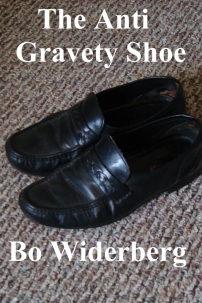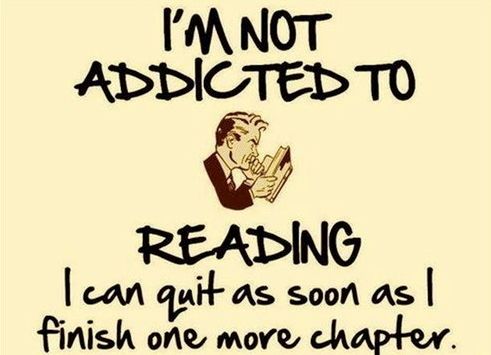 Book browsing is a lot like going to a rummage sale, or digging in an old trash site.
Book browsing is a lot like going to a rummage sale, or digging in an old trash site.
The antique vase or whimsical candlesticks you find at your neighborhood church sale are only half the fun. The real fun comes from the thrill of the find, of searching through worthless junk to find the hidden treasure that can be your next family heirloom, or a high ticket item on Ebay. But unless you’re an expert in vintage finery, then you’ll either use the hit or miss method– which will probably give you more misses than hits– or you’ll have to consult experts on your finds before you buy them and take them home. These people are your guides on the treasure hunt. It’s their job to help you navigate through dangers and distractions (i.e. scam artists and knockoffs) to find the real treasure.
Most people rely on guides to buy books online as well. Except we call these guides reviewers. Readers are so dependent on reviews, that they are more likely to buy a book even if it only has negative reviews. Unfortunately, this leaves a lot of fantastic books unread, especially if they are on sites like Smashwords and AllRomance that are perfectly good retail platforms but don’t have the sheer amount of reviews that can be found on Amazon.
Not to mention the fact that reviews are unreliable. Even if they weren’t bought by the author (which is luckily becoming less popular) they could be biased reviews from friends and family. Or they could be biased unfairly against the book. If you look at the Goodreads reviews for Mine for Tonight there is a review calling the book hard core porn (there is one sex scene. And it had *gasp* handcuffs) and essentially preaching the “we are what we eat” philosophy with reading material. That same review was copied and pasted on the rest of the Billionaire’s Obsession books, making me positive the reviewer had never red any of the books.
Another example of how wrong reviews can be is this review for Jane Austen’s Pride and Prejudice which I just found on Amazon:
“Painful dialogue, predictable storyline, and full of despicable characters. Why is this such a classic? I’m thrilled to be finished.”
Oh yes, reviews are often incredibly unreliable. Especially since they can’t actually tell you if the book is right for you.
I’m going to show you how to navigate the book-buying world solo, without relying on other people’s opinions to find a good book for you.
Check the Cover and Title
These are the first things you are going to see when browsing online for your next read. And checking these alone will eliminate the majority of the junk you’ll find.
Title
This can easily tell you the plot of the novel and if it is what you’re looking for. For instance, if you’re looking for a inspirational cozy murder mystery, then you can automatically rule books titled The Pleasure of His Punishment and My Baby-Making Machine (actually, you might want to avoid that last one completely, unless you’re studying misogyny or you found a science fiction novel where screaming toddlers are produced on a conveyor belt).
What I want specifically varies by the hour, but I always want these when finding a new romance novel:
- Well-written content
- Well-developed plot and characters
- A plot that doesn’t make me want to vomit
So I can immediately rule out these (very real) books:
Pimp: A Stepbrother Romance Book
Incubus! Paranormal Adult Romance
And while we’re on the subject of titles, it’s best to avoid keyword-stuffed kitchen sink titles, like the last one, although that one isn’t as bad as it could have been. If the author can’t even make a readable title, then imagine the readability of the actual book.
Kitchen Sink Title: WM/BW MW Billionaire/Alpha Male/Waitress/Arranged Marriage Contemporary Romance: The Marriage Contract
Acceptable Title: The Marriage Contract
Cover
I know, I know. There are a lot of bad books out there with good covers and a lot of good books with bad covers. Sometimes the author has limited means and can’t afford to spend a couple hundred on a professional book cover, not when they spent so much on a professional editor and trying to make the actual content of the book good. But in the world of $2 stock photos and Fiverr, the cover shouldn’t be illegal or suck completely. If it does, then the author:
- is fine with breaking the law, if she pulled random images off the internet.
- doesn’t care
Why else would she slap on a cover that was just a messy collage she made in five minutes on Photoshop? If she wants to put that much effort into the face of her novel, then she probably put just that much effort in the content of her novel.
Book covers to avoid at all costs:


There’s a whole website celebrating bad book covers like these. To find the worst of the worst, check out the category Typo and Image Search Gone Wrong.
Word Count
When it comes to books, size really does matter. Even if I’m in the mood for a quickie, I’ll never pay for one. It’s more difficult to write a good short story than it is to write a good novel or novella.
Mark Twain once said “I didn’t have time to write a short letter, so I wrote a long one instead.”
It takes more time and skill to write a shorter work because the writer needs to develop characters and plot within a shorter amount of time. I won’t pay money for anything less than 10,000 words on an unknown author because of this. It’s just too risky an investment. Besides, why pay three dollars for fifteen minutes of entertainment when I could get two hours worth with a Redbox rental?
If you look on Smashwords and AllRomance, you’ll find the word count easily (or in some cases, the page count). On Smashwords you don’t even click on the listing.
Description and Excerpt
Every online book retailer has at least one of these. It’s the last and most important way to tell if the book is right for you.
Description
Of course you’re going to look at the description. You want to know what the book is about, after all. And the plot according to the author is very important to read. But while reading it, also check for grammatical errors and typos. It’ll give you an idea about how much the author edits and the general quality of her work.
Excerpt
The excerpt is the final test, and should be used with the same philosophy of clothes shopping: If you don’t love it now, then you shouldn’t buy it.
The first couple of chapters were written when the author was the most enthusiastic about the book, and they are more often than not the chapters she worked the hardest on. If you finish the excerpt without dying to know what happens next, then the book is not for you.

If you liked this post (or hated it, even) then please leave a comment below. And if you found it useful, I would love if you shared it with your family, friends, and fellow bookworms. In the meantime: safe journey, treasure hunter. May you find many good books along your path.
